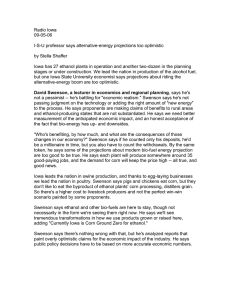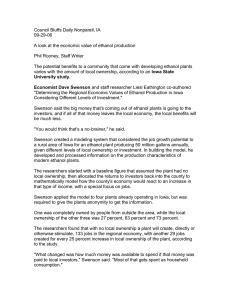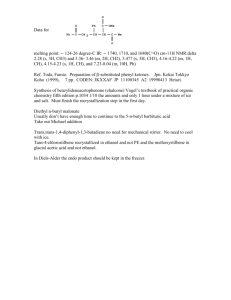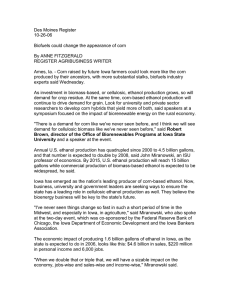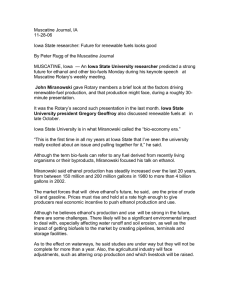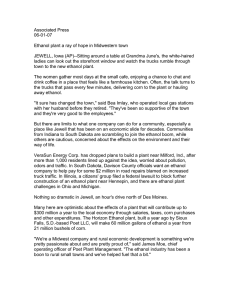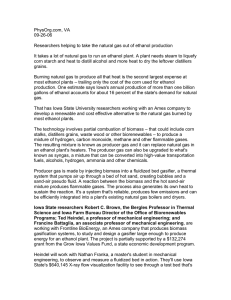Iowa Ag Connection 09-06-06 Economist Looks at Economic Impact of Corn-Ethanol Boom
advertisement
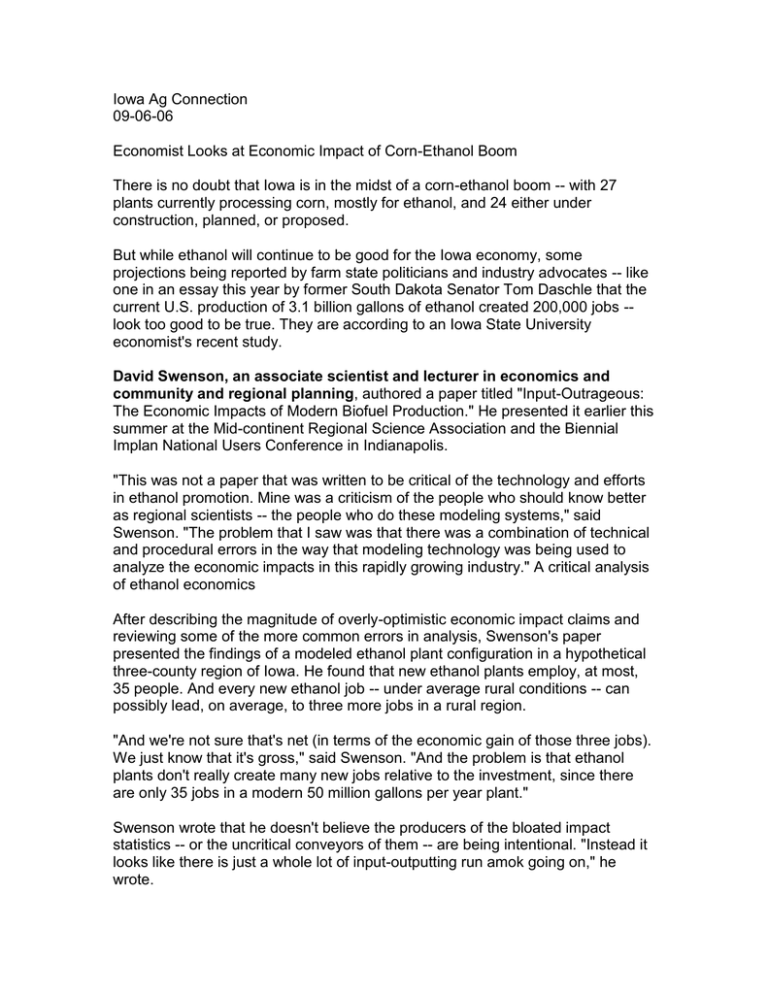
Iowa Ag Connection 09-06-06 Economist Looks at Economic Impact of Corn-Ethanol Boom There is no doubt that Iowa is in the midst of a corn-ethanol boom -- with 27 plants currently processing corn, mostly for ethanol, and 24 either under construction, planned, or proposed. But while ethanol will continue to be good for the Iowa economy, some projections being reported by farm state politicians and industry advocates -- like one in an essay this year by former South Dakota Senator Tom Daschle that the current U.S. production of 3.1 billion gallons of ethanol created 200,000 jobs -look too good to be true. They are according to an Iowa State University economist's recent study. David Swenson, an associate scientist and lecturer in economics and community and regional planning, authored a paper titled "Input-Outrageous: The Economic Impacts of Modern Biofuel Production." He presented it earlier this summer at the Mid-continent Regional Science Association and the Biennial Implan National Users Conference in Indianapolis. "This was not a paper that was written to be critical of the technology and efforts in ethanol promotion. Mine was a criticism of the people who should know better as regional scientists -- the people who do these modeling systems," said Swenson. "The problem that I saw was that there was a combination of technical and procedural errors in the way that modeling technology was being used to analyze the economic impacts in this rapidly growing industry." A critical analysis of ethanol economics After describing the magnitude of overly-optimistic economic impact claims and reviewing some of the more common errors in analysis, Swenson's paper presented the findings of a modeled ethanol plant configuration in a hypothetical three-county region of Iowa. He found that new ethanol plants employ, at most, 35 people. And every new ethanol job -- under average rural conditions -- can possibly lead, on average, to three more jobs in a rural region. "And we're not sure that's net (in terms of the economic gain of those three jobs). We just know that it's gross," said Swenson. "And the problem is that ethanol plants don't really create many new jobs relative to the investment, since there are only 35 jobs in a modern 50 million gallons per year plant." Swenson wrote that he doesn't believe the producers of the bloated impact statistics -- or the uncritical conveyors of them -- are being intentional. "Instead it looks like there is just a whole lot of input-outputting run amok going on," he wrote.
